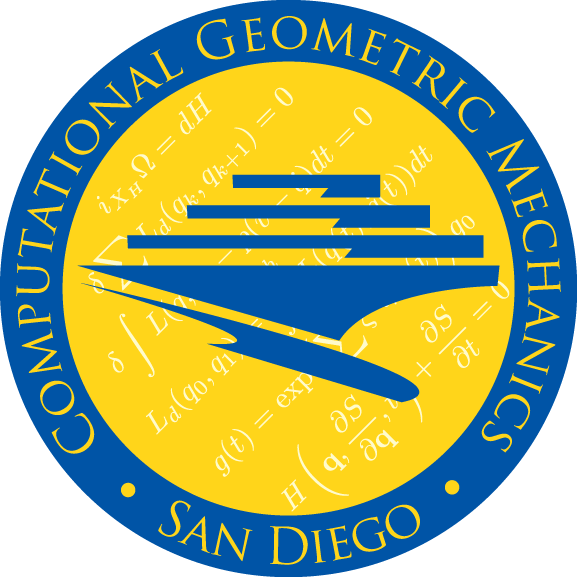[ PDF | arXiv:0911.2258 [math.OC] ]
(with A.M. Bloch and T. Ohsawa)
We develop a discrete analogue of the Hamilton-Jacobi theory in the framework of the discrete Hamiltonian mechanics. We first reinterpret the discrete Hamilton-Jacobi equation derived by Elnatanov and Schiff in the language of discrete mechanics. The resulting discrete Hamilton-Jacobi equation is discrete only in time, and is shown to recover the Hamilton-Jacobi equation in the continuous-time limit. The correspondence between discrete and continuous Hamiltonian mechanics naturally gives rise to a discrete analogue of Jacobi's solution to the Hamilton-Jacobi equation. We also prove a discrete analogue of the geometric Hamilton-Jacobi theorem of Abraham and Marsden. These results are readily applied to discrete optimal control setting, and some well-known results in discrete optimal control theory, such as the Bellman equation (discrete-time Hamilton-Jacobi-Bellman equation) of dynamic programming, follow immediately. We also apply the theory to discrete linear Hamiltonian systems, and show that the discrete Riccati equation follows as a special case of the discrete Hamilton-Jacobi equation.
Wednesday, November 11, 2009
Friday, October 30, 2009
Resources for young mathematicians
I have collected below some resources for aspiring and young mathematicians:
Advice to a Young Mathematician
Career advice from Terrence Tao
NSF CAREER Proposal Writing Tips
A particularly insightful comment from Prof. Michael Atiyah is "one could say that all the really creative aspects of mathematical research precede the proof stage."
Prospective and current UCSD Math graduate students should consult the UCSD Mathematics Graduate Handbook, which is full of useful practical advice.
Advice to a Young Mathematician
Career advice from Terrence Tao
NSF CAREER Proposal Writing Tips
A particularly insightful comment from Prof. Michael Atiyah is "one could say that all the really creative aspects of mathematical research precede the proof stage."
Prospective and current UCSD Math graduate students should consult the UCSD Mathematics Graduate Handbook, which is full of useful practical advice.
Wednesday, October 28, 2009
Computational Geometric Mechanics at San Diego

The computational geometric mechanics group has relocated to the University of California, San Diego, where it is housed in the Department of Mathematics within the Division of Physical Sciences, and it is affiliated with the Center for Computational Mathematics, the Program in Computational Science, Mathematics, and Engineering, and the Cymer Center for Control Systems and Dynamics.
It focuses on developing a self-consistent discretization of geometry and mechanics to enable the systematic construction of geometric structure-preserving numerical schemes based on the approach of geometric mechanics, with a view towards obtaining more robust and accurate numerical implementations of feedback and optimal control laws arising from geometric control theory.
Subscribe to:
Posts (Atom)
